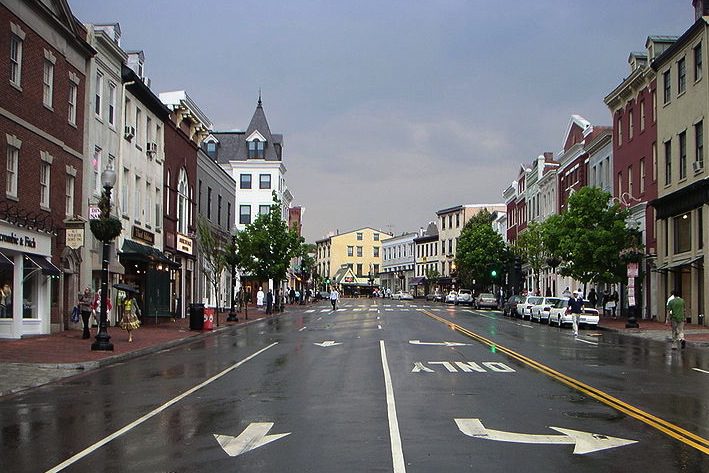Georgetown Main Street Picks Board of Directors, Offers Grants
By • April 4, 2018 0 625

It’s been almost six months since the District Department of Small and Local Business Development designated the new nonprofit organization Georgetown Main Street to receive a $174,000 grant, meant for initial operations and projects and as a matching-funds goal.
Since then, under the guidance of the Georgetown Business Association, which initiated the grant request, Georgetown Main Street has hired an executive director, established an office at 3235 P St. NW and developed a website. In February, the new board of directors met for the first time and applications for small business grants were announced (see below).
The first two quarterly funding disbursements — two checks for $43,750 each — from DSLBD have been received. “We’re all caught up,” Executive Director Jessie Himmelrich told The Georgetowner.
“The board is a good mix of seven to nine business and property owners and tenants, as well as Georgetown residents of diverse backgrounds and experiences,” Himmelrich said.
The members of the executive committee are:
• Hope Solomon of Wedding Creations & Anthony’s Tuxedos, chair;
• Constantine Ferssizidis of TD Bank, vice president;
• Alan Helfer of Helfer & Company, treasurer; and
• Paul Monarch of the Alexander Graham Bell Association, secretary.
The four also constitute the executive committee of the Georgetown Business Association.
Other Georgetown Main Street board members are:
• Alice Haase of CastroHaase,
• Samantha Hays-Gushner of the Phoenix,
• Skip Moosher of Morgan Stanley, Cory Peterson of Georgetown University and
• Becky Waddell of Take Care.
“It will be a fully working board that meets at 11 monthly meetings a year,” Himmelrich said. “There may be more spots on the board opening in the future, but we’re not actively recruiting for any at this point.”
Each board member signed a contract pledging to give or get $1,000 in donations by August 31, 2018.
As part of its mission and required activities, Georgetown Main Street is offering small businesses in its defined area technical-assistance grants ranging from $1,000 to $5,000 each for storefront and interior improvement projects, as well as for improvements to business operations. The grants are expected to cover 80 to 90 percent of a project’s costs. Grant applications are now online at georgetownmainstreet.com (that’s com not org).
Himmelrich expects that four to eight projects will be chosen to receive grants. Eligible store improvement projects include façade work such as painting, awning and canopy replacement and repairs to exterior lighting and signage. Interior projects could include construction of bathrooms, kitchens and private rooms, repairs to walls and ventilation systems and interior decorations such as murals and lighting.
Business-operations projects could cover business planning, management training, assistance for government regulation compliance, marketing and branding, tax preparation and accounting, legal assistance and one-on-one collaborative business help, according to the grant guidelines.
New applications are due April 30 and all projects are to be completed by Sept. 30. These are reimbursement grants, subject to approval of the DSLBD. “We’re working out the process of grant application reviews now,” said Himmelrich.
D.C.’s Main Street program builds on the approach developed by the National Main Street Center in 1980 to assist commercial revitalization efforts nationwide. The approach consists of four points which work together to build a sustainable and complete community revitalization effort in the following areas:
· Organization of commercial revitalization efforts (e.g., developing and sustaining financial and volunteer resources);
· Promotion of neighborhood commercial districts (e.g., branding campaigns and special events) and individual businesses operating therein;
· Designs affecting the physical environment of the commercial district (e.g., clean teams and streetscape improvements) and the appearance of business storefronts and interiors;
· Economic vitality, including business retention, recruitment and expansion.

